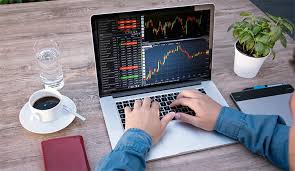
Forex Trading Basics: A Beginner’s Guide
Forex trading, also known as foreign exchange trading, is the act of buying and selling currencies on a global market with the aim of making a profit. As one of the largest financial markets in the world, forex presents an exciting opportunity for traders. In this guide, we will cover essential concepts that beginners need to understand to start their forex trading journey. Additionally, for those based in Jordan, you can check forex trading basics beginners guide Forex Brokers in Jordan for reliable trading platforms.
Understanding Currency Pairs
In forex trading, currencies are traded in pairs, meaning that one currency is exchanged for another. The first currency in a pair is called the base currency, while the second is referred to as the quote currency. The exchange rate indicates how much of the quote currency is needed to purchase one unit of the base currency.
For example, in the pair EUR/USD, the euro (EUR) is the base currency, and the U.S. dollar (USD) is the quote currency. If the exchange rate is 1.20, it means that 1 euro can be exchanged for 1.20 U.S. dollars. Understanding how currency pairs work is fundamental for any forex trader.
Types of Forex Market Participants
The forex market consists of different participants, each playing a critical role:
- Central Banks: They manage a country’s currency, money supply, and interest rates, influencing forex markets through monetary policy.
- Commercial Banks: These institutions facilitate currency trading for their clients and conduct their own speculative trading.
- Corporations: Many businesses engage in forex trading to hedge against currency risk or to conduct international transactions.
- Retail Traders: Individual speculators who buy and sell currencies with the hope of making a profit.
Market Analysis
Successful forex trading relies heavily on market analysis, which can be performed using two primary methods: fundamental analysis and technical analysis.
Fundamental Analysis
This approach focuses on economic indicators, news events, and geopolitical factors that can influence currency values. Key indicators include:
- Gross Domestic Product (GDP)
- Unemployment rates
- Inflation rates
- Interest rates
By analyzing these factors, traders can make informed predictions about currency movements.
Technical Analysis

Technical analysis involves studying price charts and using various indicators to forecast future price movements. Traders analyze trends, support and resistance levels, and employ tools such as moving averages, Relative Strength Index (RSI), and Fibonacci retracement to make decisions.
Risk Management
Risk management is crucial in forex trading, as it helps traders protect their capital and ensure long-term success. Here are key components of effective risk management:
- Setting Stop-Loss Orders: A stop-loss order automatically closes a position at a predetermined price to limit losses.
- Position Sizing: Control the amount of capital risked on each trade, typically a small percentage of the total account balance.
- Diversification: Spread your investments across different currency pairs to reduce risk.
Choosing a Forex Broker
Selecting the right forex broker is critical for your trading success. Consider the following factors when choosing a broker:
- Regulation: Ensure the broker is regulated by a reputable authority.
- Trading Platform: The platform should be user-friendly and offer the necessary tools for analysis.
- Spreads and Fees: Compare the trading costs, including spreads and commissions.
- Customer Support: Good support can help resolve issues quickly.
Developing a Trading Strategy
A well-defined trading strategy is essential for success in forex trading. It should outline your trading goals, risk tolerance, and preferred trading style. Common strategies include:
- Scalping: Involves making multiple trades throughout the day to capture small price movements.
- Day Trading: Traders open and close positions within the same trading day to take advantage of short-term price fluctuations.
- Swing Trading: This strategy involves holding positions for several days or weeks to benefit from expected price swings.
Emotional Control in Trading
Forex trading can be emotionally challenging, especially during volatile market conditions. Learning to manage your emotions is vital for making rational decisions. Develop discipline and stick to your trading plan, even during times of uncertainty.
Getting Started with a Demo Account
Before risking real money, consider opening a demo account with a forex broker. A demo account allows you to practice trading with virtual funds, helping you understand how the market works, test your strategies, and build confidence. Use this opportunity to familiarize yourself with the trading platform and market conditions.
Conclusion
Forex trading can be a rewarding pursuit if approached with proper knowledge and preparation. By understanding the basics, conducting thorough analysis, managing risks, and practicing repeatedly, you’ll be better equipped to navigate the exciting world of forex. Remember to stay patient, learn continuously, and adjust your strategies as needed for a more successful trading experience.

